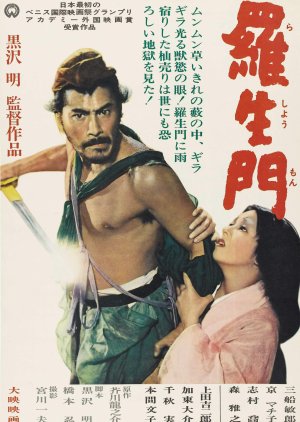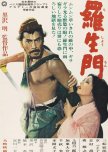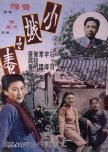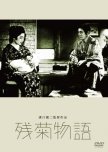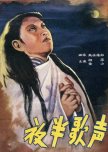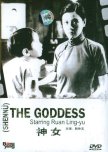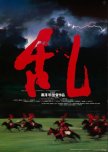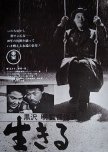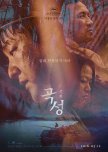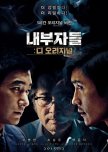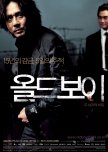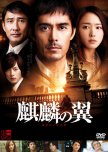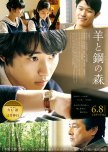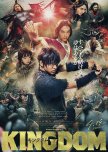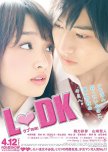
Intriguing story of a crime being told from the differing points of view , including that of the victim, the suspect, and a witness ... w/ the truth to be found somewhere in between .... about cowardice , heroism and humanity.
Like all classic films, it surpasses place and time .... Brilliant!!! ...... A must see for all film buffs !!!
Was this review helpful to you?

This review may contain spoilers
"It's human to lie. Most of the time we can't even be honest with ourselves."
*I have updated this review and my score on a second viewing. My added thoughts follow the original review.*I'm going to post a short, heretical review of this much lauded film. Much as I wanted to love this film, it had a major stumbling block for me in the story.
That the movie is technically well made is not up for debate. It was a well made movie from 1950. I've enjoyed other Kurasawa movies. I love Mifune Toshiro. Rashomon might have been a profound movie experience for me if the story had not been told through such a narrow male lens.
The Rashomon effect is still used to describe eye witnesses giving different testimony to a single event. People do lie to each other, to the court, and to themselves because of their egos, fears, survival instincts, and inability to face the truth. The film showed this human frailty quite poignantly. The cinematography, music, and acting were exceptional for the time. Mifune's performance as the bandit tinged with madness was unexpected but quite well done although at times it did veer into Ernest T. Bass territory.
Where I diverge from the fans of this movie is in one particular aspect of the film. It repeatedly showed and told the viewer that women were not just physically, but morally weaker than men and were not to be trusted. This was even more despicable because the men were shown as being morally corrupt so the raped woman was even lower than they were. Twice we come away with the woman in the story enjoying her rape and trying to use it to her advantage. In different flashbacks she pit the two men against each other or asked the bandit to murder her husband. That she was willing to go with her rapist was beyond comprehension to me, unless she was planning on murdering him in his sleep. I understand that during the period of time the movie was set in, and even in 1950, a raped woman was looked on as damaged goods. (The Comfort Women after WWII were looked down upon and expected to commit suicide and often shunned by their families.) If the director had convinced me that she was doing what she had to do to survive I might have been able to stomach that part of the story better, but as it was shown it built a fire of anger in my chest, not at the woman but the storyteller for perpetuating some of the most dangerous myths about women and rape. Given, it was a common view of the time, but it didn't make it any less reprehensible to me.
Only in the woman's version does she not come across as a conniving "whore", perhaps only a murderous woman to save herself, but we are also told to not believe a woman's story immediately thereafter.
As much as I tried to overlook the misogynistic view of women and rape in this movie to enjoy the rest of the story, I couldn't escape it. Rashomon, despite all the glorious reviews I've read across the internet, failed to live up to them in my experience.
2 September 2021
*Update on my review:*
Having now watched all but one of Kurosawa’s films for which he was the writer/director I decided to revisit this film about the unreliability of eye witness accounts and how truth is often relative, enigmatic, and subjective. I struggled with it mightily the first time because of how women were not only looked down upon but treated with outright hostility. I wanted to see if my opinion would change on a second viewing of this famous and well-loved film.
When asked about Rashomon, Kurosawa had the following comments: “Human beings are unable to be honest with themselves without embellishing…(these characters) are the kind who cannot survive without lies to make them feel they are better people than they really are.” “The human heart is impossible to understand.”
The message that people are weak and even lie to themselves for a variety of reasons still resonates. Also, how perspective and memory are faulty witnesses still holds true. I would have to add that perhaps Kurosawa was blind to the depths of his own gender bias. Other Japanese directors from this time frame and even earlier had made films showing how the patriarchal society caused women to suffer, I guess I was just expecting more from one of my favorite directors. I’ve read interviews with him about this film and he discussed at length how they suffered from leeches while filming in the forest, but not even a brief comment about the trauma or suffering rape causes a woman or how he wanted to show the inequality women suffer from. Instead Tajomaru is romantically described as a womanizer.
Social reform, individual responsibility, and equality were important points in many of Kurosawa’s films. Apparently, just for men. Masago’s rape was only viewed as a crime against her husband, and yes, I know this would be historically accurate. I was just looking for a hint of sympathy for her from any of the male characters since she was the only woman in the film. Her testimony in court was dismissed as irrelevant immediately. When she testified, she didn’t even mention her rape because either she knew no one would care or the writers knew that. The only crime was the samurai's death. The male rape fantasy that women really like it and want to be dominated was still appalling. Just one flicker of disgust from the men telling the story to the peasant, anything to tip the hand that her treatment was inexcusable, but nothing. Because all of the voices except one telling the story or judging it were male—the witnesses, the judge, the writers, the director---Masago’s witness was all but ignored. Masago's only weapon against the dominating men was her sexuality, all she had to try and salvage her situation with and save her life. Perhaps Masago was diabolically cruel and cunning, pitting two men’s penises and swords against each other for her own pleasure, her rapist and heartless, cowardly husband, but as was pointed out, “It’s human to lie. Most of the time we can’t even be honest with ourselves,” so I’m afraid I can’t even believe the actor (character) who usually played the moral compass in Kurosawa’s films.
I did bump my score up from a 6.5 to a 7.5 because this is a culturally important film and it was well made, but honestly, and still unpopularly, I didn’t like it any better the second time around. From my own biased witness on this film, if Kurosawa had been making a culturally relevant film that also purposefully highlighted the ruthless way rape victims were treated and the stunning disregard for women instead of reinforcing dangerous beliefs, I’d have rated this much, much higher.
11 June 2024
Was this review helpful to you?

Is this world a hell?
We really know well who Akira Kurosawa is. The one who has the most inspiration and influence of films industrial from all kinds of directors. Make him as a role model. “Rashomon” received a critical response by many people because the story was so different from other movies. This movie receiving many awards including Oscar nominations in the Best Art Direction by Takashi Matsuyama and H. Motsumoto in 1953. “Rashomon” became one of the movies raised the name of the director himself. It becomes one that destroyed the film industry. Introduced a term called a Rashomon effect. Directors such as Ingmar Bergman, Alfred Hitchcock, Federico Fellini, and Christopher Nolan took inspiration from this film. For movie-lovers, especially cult-classics, “Rashomon” became one of the influents with a new innovation at the time.It was based on two stories by Ryûnosuke Akutagawa, “Rashomon” and “In a Grove”. Kurosawa didn’t take much in the form of material and frames. He takes every perspective later we would face a philosophical question and answer. Who is righteous and who is a liar. Here, you are the “police” where the audience is the perspective. The actor is directly facing the audience’s on-screen. This is life and death. It’s a “guilty or not” situation. A bandit just killed the husband of the wife he raped.
The way of Akira Kurosawa takes every of the shot as well as when I first watched “Seven Samurai” where he used the weather and fixed cameras more often become his own trademark. The rain at the beginning of the scene really tells us a sense of confusion in so deeply felt by the two characters which seem confusing and has been amazed by such a full-of-twist story.
In the end, the movie ends with redemption and humanity appear on the woodcutter’s character along with the rain that gradually stops and the sun appears as if it’s a symbol that there is still a kindness that arises in humans. It’s a philosophy about what the true means of a human being is. The rest of the backgrounds used in this film are just three: the Rashomon gate, the scene when the perpetrators and victims retell their stories, and the forest. Various kinds of memorable scenes in this film are like the choreography from one on one between Tajômaru and Takehiro, a medium segment, and various kinds of out of character from the actors and actresses.
Toshirô Mifune is Akira Kurosawa’s favorite actor. When his character as one of the most memorable yet respected characters in “Seven Samurai,” we got Toshirô Mifune as a bandit who felt scared, tried to convince us, and the police. There is a small scene when he ran down on a hill in the forest without any fear prevented him. He ran as if no one could block him the same as in “Seven Samurai” which you can look closely and a close-up from his expression there is no fear of it.
Fumio Hayasaka’s score is great and the comical one, makes each scene compelling in a few moments and sometimes, some little segment of being a silence is really needed for certain scenes. The actors and actresses also performed perfectly especially Machiko Kyô and Masayuki Mori along with Toshirô Mifune because those who dominated the most in this movie. They did various changes of characters from various points of view where in the end, they were the major focus.
“Rashomon” seems like a courtroom drama movie but it’s not about finding the truth. You’re stuck on a Kurosawa’s philosophy about human beings, who can be trusted and if there is nothing to be trusted, is this world a hell? It’s a movie that puts a lot of influences, for now, a story which feels new and original at the time and becomes a new innovation. With truly beautiful and brilliantly shot visuals, the greatest acting performance, the visual, and the score, “Rashomon” deserves to be called art along with the best film ever. In fact, it’s difficult to parallel with the today films where creative seems to be gone. “Rashomon” is a film yet more than a film.
Was this review helpful to you?

Top give aways for me: The elite acting, the elite score, and the amazing camera shots.
Dislikes: Some parts felt to long or over dramatic, the story / plot could have been a little better but I understand that the director could have been trying to focus on the philosophical message of the film.
Was this review helpful to you?

